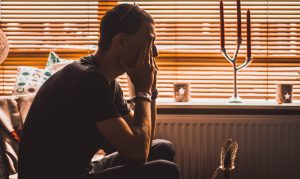
If you had COVID a few months ago and you still don’t feel well and have any symptoms like fatigue, feeling foggy in the head, shortness of breath, inability to exercise, chest pain, headaches, problem sleeping, aches and pains, fevers, anxiety or depression or weight loss you may have “Long COVID”.
When does COVID become long COVID
We are still working on definitions. Long COVID generally describes anyone having symptoms more than four weeks after a COVID infection. Post-COVID syndrome is a term used for people who have symptoms more than 3 months after their COVID infection that lasted for 2 months. Importantly people can feel fine after their COVID infection and develop symptom later. If you think you may have Long COVID, it is essential to see your doctor to exclude other causes for your symptoms.
How common is Long Covid
That is a tough question to answer. Studies vary from between 1 in 10 people who have had COVID and one in 3 people who have had COVID developing Long COVID. However, many of these studies are on unvaccinated people with one of the earlier strains of COVID. If you have been vaccinated, it seems you halve your chances of developing Long COVID. Researchers are hoping that omicron will cause less Long COVID than delta.
You can develop Long COVID even after mild COVID. However, you are far more likely to have Long COVID if you have underlying health problems or you were hospitalised with COVID.
Long COVID from current studies is very rare in children.
What can I do to prevent Long COVID
Get vaccinated and continue to make efforts not to catch COVID. It is not inevitable.
What causes Long COVID
Researchers are discovering higher levels of certain proteins from the immune system in people with Long COVID. This is vital research being done in Australia as it will help us understand this condition better and lead to new and effective treatments. It is also absolute proof that it is not in your head if you have ongoing symptoms long after you feel you should be better.
What should I do if I think I have Long Covid
It is extremely important to talk to your doctor if you think you have Long COVID. They need to make sure you don’t have another condition causing the symptoms and although there are no specific treatments yet, they may be able to put things in place to make you feel better.
Does getting vaccinated decrease your chances of getting Long COVID
There is increasing evidence that vaccination halves your risk of Long COVID.
Photo by christopher lemercier on Unsplash